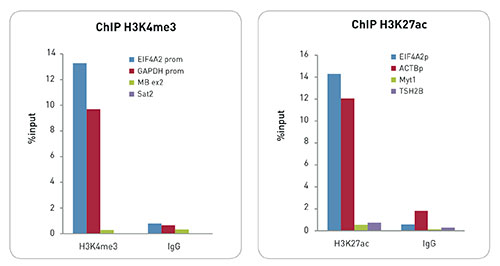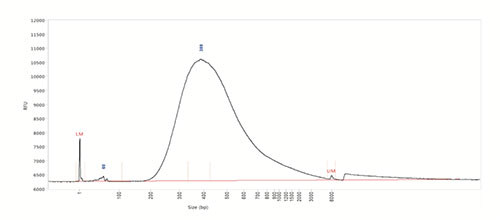The iDeal Library Preparation Kit reliably converts DNA into indexed libraries for next-generation sequencing, with input amounts down to 5 ng. Our kit offers a simple and fast workflow, high yields, and ready-to-sequence DNA on the Illumina platform.
Features
- Sample: Fragmented dsDNA
- Input: 5 ng – 1 µg
- Fast protocol: 3 hours
- Easy processing: 3 steps
- Indexing: single indexes for multiplexing up to 24 samples
- Manual and automated protocols available
- Sequencing technology: Illumina
Applications
- MeDIP-seq library prep
- Genomic DNA sequencing
- High input ChIP-seq
| Cat. No. | Product | Format | |
|---|---|---|---|
| C05010020 | iDeal Library Preparation Kit x24 (incl. Index Primer Set 1) | 24 rxns | |
| C05010021 | Index Primer Set 2 (iDeal Lib. Prep Kit x24) | 24 rxns |






